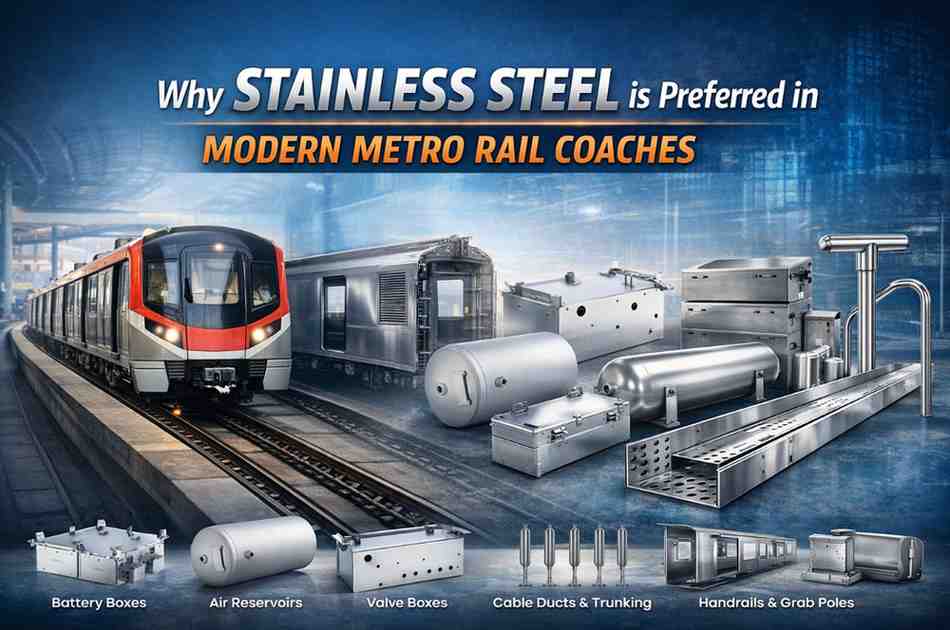Business industrial
Are You Sabotaging Your Own Success? Check Out These 6 Telltale Signs

Are you feeling like success is always just out of reach, no matter how hard you try? Do you find yourself constantly reevaluating your goals and wondering why you’re not making progress? It might be time to take a closer look at your behavior and see if you’re unknowingly sabotaging your own success. In this blog post, we’ll explore six telltale signs that could be holding you back from achieving the success you desire. So grab a cup of coffee, sit back and let’s dive in!
You’re Ticking All the Wrong boxes
It’s easy to fall into the trap of measuring success based on external factors like income, job titles or social media followers. But when these become your sole focus, you might be ticking all the wrong boxes and losing sight of what really matters.
Success should be defined by your own personal values and goals, not society’s expectations or standards. It’s important to take time to reflect on what truly brings you joy and fulfillment in life.
Ask yourself: are you chasing after things solely for the sake of impressing others? Are you sacrificing your own happiness for external validation? If so, it may be time to reevaluate your priorities and shift your focus towards things that genuinely bring you contentment.
Remember that true success is a journey, not a destination. It involves continuous growth and learning, as well as celebrating small victories along the way. By focusing on what truly matters to you, rather than blindly following societal norms, you can pave a path towards genuine success and fulfillment.
You’re Constantly Reevaluating Your Goals
Are you someone who is always reevaluating your goals? Perhaps, you set a goal for yourself but then constantly doubt whether it’s the right one or not. While it’s important to have some level of flexibility and adjust your goals as necessary, too much reevaluation can be detrimental to your success.
One reason why constant reevaluation can hold you back is because it takes up valuable time and energy. Instead of focusing on taking action towards achieving your original goal, you’re spending all your effort debating if that goal is even worth pursuing.
Another issue with constantly changing your goals is that it can lead to indecisiveness and lack of commitment. If every time things get challenging or uncertain, you change course entirely, how will you ever build resilience and perseverance?
It’s also important to consider where these doubts around your goals are stemming from. Are they coming from a genuine desire for growth and improvement? Or are they rooted in fear or self-doubt? Reflecting on this can help you determine whether the reevaluation process is productive or counterproductive.
Ultimately, while reassessing our goals from time to time can be helpful, we must find a balance between being adaptable yet committed. Trust yourself enough to stick with what matters most while still allowing room for adjustments along the way.
You’re Afraid of Failure
Fear of failure can be a major stumbling block for many people on the path to success. It’s natural to feel nervous or anxious about taking risks, but when that fear becomes paralyzing it can prevent you from moving forward in your career or personal life.
One common reason for this type of fear is the pressure we put on ourselves to succeed. We set high expectations and worry that if we fail, it means we’re not good enough. This negative self-talk only reinforces our fears and makes them more difficult to overcome.
Another reason why some people are afraid of failure is because they see it as a reflection of their worth as a person. They may believe that if they fail at something, it means they themselves are failures. But this couldn’t be further from the truth – everyone fails at some point in their lives, and it’s how we learn and grow.
It’s important to remember that failure isn’t necessarily a bad thing – sometimes our greatest lessons come from our mistakes. When we try something new and don’t get the results we were hoping for, instead of dwelling on what went wrong, take time to reflect on what you learned from the experience.
One way to combat fear of failure is by setting realistic goals for yourself. Don’t expect perfection right away – focus on making progress one step at a time. Celebrate small wins along the way and use these successes as motivation to keep going.
Remember that no one achieves success without encountering setbacks along the way. Embrace failures as opportunities for growth rather than roadblocks holding you back from reaching your full potential
You’re Hesitant to Take Risks
Taking risks is an integral part of achieving success. However, if you’re hesitant to take risks, it can hinder your progress and prevent you from reaching your full potential. Here are some reasons why you may be reluctant to take risks:
Firstly, fear of failure can hold us back from taking risks. We often worry about the negative consequences that might arise from our actions, which makes us hesitate when it comes to making bold moves.
Secondly, a lack of confidence in our abilities can also make us reluctant to take risks. If we don’t believe in ourselves and our capabilities, we tend to play safe instead of exploring new opportunities.
Thirdly, being too comfortable with the status quo can lead us towards hesitation while taking calculated risks. We become complacent with what we have achieved so far and feel uncomfortable at the thought of stepping out into unknown territory.
However, taking calculated risks is essential for personal and professional growth as they help develop skills like adaptability, decision-making ability and resilience which are critical for achieving success.
In conclusion , there’s no doubt that taking a risk involves uncertainty but by overcoming fear or self-doubt will allow one to reap benefits beyond their wildest dreams!
You’re Dwelling on the Negative
One of the most common ways people sabotage their own success is by dwelling on the negative. This can manifest in a variety of ways, from focusing on past failures to constantly worrying about what could go wrong.
When you’re constantly thinking about all the things that could go wrong, it’s easy to lose sight of the opportunities that are right in front of you. You may find yourself hesitating when presented with new challenges or second-guessing your decisions out of fear that they’ll lead to failure.
Perhaps even more insidious is the tendency to dwell on past mistakes and failures. While it’s important to learn from our mistakes, constantly replaying them in your mind will only serve to reinforce negative thought patterns and sap your motivation.
Another way this negativity can hold you back is by causing you to focus too much on what others think. When we worry too much about how others perceive us, we become overly cautious and risk-averse – qualities that are antithetical to success.
The first step toward overcoming these negative thought patterns is awareness; once you recognize how they’re holding you back, it becomes easier to take action toward changing them. Start by consciously shifting your focus away from potential pitfalls and instead directing your attention towards positive outcomes and possibilities. With time and practice, this shift in mindset can help pave the way for greater success in all areas of life.
You Don’t Believe in Yourself
Belief in oneself is at the core of any successful pursuit. Without it, you’re bound to sabotage your own success. Lack of self-belief can be debilitating, leading to procrastination and avoidance of challenges that could help you grow.
One common reason for not believing in oneself is a lack of confidence due to past failures or negative feedback received from others. It’s essential to recognize that such setbacks are part of the learning process and not an indication of one’s worth or potential.
Another factor is comparing oneself with others, which often leads to feelings of inadequacy and inferiority complex. Remember that everyone has their unique strengths and weaknesses, and focusing on what you do well can help build self-confidence.
Fear of failure also plays a significant role in undermining self-belief. Instead of allowing fear to paralyze us, it’s important to view failure as an opportunity for growth and improvement.
To develop greater self-belief, start by setting small goals for yourself and celebrate every achievement along the way. Surround yourself with positive people who encourage you rather than discourage you from pursuing your dreams.
Ultimately, building belief in oneself takes time but is critical for personal growth and professional success.
Conclusion
It’s important to take a step back and evaluate whether you’re sabotaging your own success. The signs may not always be obvious, but they can have a significant impact on your ability to achieve your goals.
Remember that failure is a natural part of the process and taking risks can lead to great rewards. Don’t let fear hold you back from reaching your full potential.
Instead, focus on the positive and believe in yourself. Set achievable goals and celebrate small successes along the way.
By recognizing these telltale signs of self-sabotage, you can start making changes today that will help you reach new heights of success both personally and professionally. So go out there with confidence, embrace challenges as opportunities for growth, stay positive and keep pushing forward towards achieving greatness!
Business industrial
Magna Mike Thickness Gauge: Precision in Material Measurement

In modern manufacturing and quality control processes, accurate material measurement is essential. Industries such as packaging, automotive, medical, plastic manufacturing, and consumer goods rely heavily on precise wall thickness measurement to maintain product quality and safety. The Magna Mike Thickness Gauge has become a trusted solution because it offers high accuracy, simple operation, and non-destructive testing capabilities. This advanced instrument helps manufacturers maintain consistency while saving time and reducing errors.
What Is a Magna Mike Thickness Gauge?
A Magna Mike Thickness Gauge is a magnetic thickness measurement instrument designed to measure the wall thickness of non-ferrous materials such as plastic, glass, aluminum, and composites. It uses magnetic technology to determine thickness without cutting or damaging the sample. This makes it ideal for industries where maintaining the integrity of the product is critical.
Unlike traditional mechanical measurement tools, this gauge provides digital readings quickly and accurately. Its easy-to-use interface allows operators to perform tests efficiently without extensive training.

How It Works
The Magna Mike Thickness Gauge works on a magnetic principle. A small magnetic target is placed on one side of the material, while a probe is placed on the other side. The magnetic field strength between the probe and the target changes based on the material thickness. The instrument calculates this variation and displays the exact thickness measurement.
This method ensures:
- Non-destructive testing
- Fast and reliable results
- Consistent accuracy
- Minimal operator error
Because the measurement process is simple, it improves productivity and reduces testing time in industrial environments.
Key Features of the Magna Mike Thickness Gauge
One of the main reasons industries prefer this instrument is its advanced features combined with ease of operation. Some important features include:
High Accuracy Measurement
The gauge delivers precise thickness readings, even for thin materials. This helps maintain strict quality standards and ensures product reliability.
User-Friendly Interface
The instrument has a simple display and intuitive controls, making it easy for operators to use without complicated training.
Non-Destructive Testing
Since the material does not need to be cut or damaged, products remain intact after testing.
Portable Design
Its compact and lightweight design allows easy use in laboratories, production floors, or field applications.
Data Storage and Analysis
Many models offer data storage features that help track measurement history and analyze quality trends.
Applications Across Industries
The Magna Mike Thickness Gauge is widely used in several industries due to its versatility and accuracy.
Packaging Industry
Manufacturers use it to measure plastic bottle thickness, container walls, and packaging films. This ensures product durability while reducing material waste.
Automotive Industry
It helps measure plastic components, fuel tanks, and interior parts to ensure safety and performance.
Medical Device Manufacturing
Medical equipment requires precise measurements for safety compliance. This gauge helps maintain strict quality standards.
Plastic and Glass Manufacturing
It is ideal for checking uniform thickness in molded products, ensuring consistent quality.
Aerospace and Engineering
Engineers use it to measure composite materials where precision is critical.
Benefits of Using Magna Mike Thickness Gauge
Using this instrument provides several advantages that improve quality control and operational efficiency.
Improved Product Quality
Accurate thickness measurement ensures consistent product performance and durability.
Reduced Material Waste
Producers can enhance material efficiency, resulting in reduced expenses.
Faster Testing Process
Quick digital readings increase productivity and reduce inspection time.
Reliable Quality Assurance
Consistent measurements help meet industry standards and regulatory requirements.
Ease of Use
Simple operation allows even new users to perform measurements confidently.
Why Accuracy Matters in Thickness Measurement
Thickness measurement plays a major role in product safety, performance, and cost control. Incorrect measurements can lead to product failure, increased material consumption, or customer dissatisfaction. High-precision instruments like the Magna Mike Thickness Gauge eliminate guesswork and provide dependable data for decision-making.
Accurate testing also helps manufacturers maintain brand reputation and comply with quality certifications. Consistent quality ultimately leads to better customer trust and market competitiveness.
Tips for Effective Use
To achieve the best results, users should follow a few basic practices:
- Always calibrate the instrument before use
- Ensure proper placement of the magnetic target
- Keep the probe clean for accurate readings
- Follow manufacturer guidelines for maintenance
- Store the device safely when not in use
These simple steps help maintain accuracy and extend the instrument’s lifespan.
Future of Thickness Measurement Technology
As industries continue to adopt automation and advanced quality control methods, thickness measurement technology is evolving. Modern gauges are becoming smarter, faster, and more connected. Features such as digital data integration, wireless connectivity, and advanced analytics are improving quality monitoring.
The Magna Mike Thickness Gauge represents this technological progress by combining precision, simplicity, and reliability in one solution.
Conclusion
The Magna Mike Thickness Gauge is an essential tool for industries that require accurate wall thickness measurement without damaging materials. Its magnetic measurement technology, high accuracy, and easy operation make it a preferred choice for quality control professionals. From packaging to automotive and medical manufacturing, this instrument helps ensure consistent product quality while improving efficiency.
By investing in reliable thickness measurement tools, manufacturers can enhance product performance, reduce waste, and maintain competitive standards. The Magna Mike Thickness Gauge stands out as a dependable solution that combines precision with user-friendly operation, making it a valuable asset for modern industrial testing.
Business
Packaging Companies in Sri Lanka: Innovations, and Sustainability

The packaging industry plays a vital role in modern business, supporting sectors such as food and beverage, pharmaceuticals, agriculture, retail, and exports. Over the past decade, Packaging companies in Sri Lanka have experienced significant growth, driven by rising consumer demand, expanding export markets, and increased awareness of sustainable solutions. Today, the industry stands as one of the key contributors to the country’s manufacturing and supply chain ecosystem.
Sri Lanka’s strategic location in South Asia, combined with its growing industrial base, has positioned the country as an emerging hub for packaging innovation. From flexible plastic packaging to eco-friendly paper solutions, Food Packaging companies in Sri Lanka are adapting quickly to global standards while serving both local and international markets.

The Importance of Packaging in Modern Business
- Protecting products during transportation and storage
- Extending shelf life, especially for food items
- Enhancing brand visibility and customer appeal
- Meeting regulatory and safety standards
- Supporting sustainability goals
For food manufacturers in particular, packaging determines product freshness, hygiene, and compliance with international export requirements. As Sri Lanka’s food export industry continues to grow, the demand for reliable and innovative packaging solutions has increased accordingly.
The Growth of Food Packaging Firms in Sri Lanka
The food industry in Sri Lanka includes tea, spices, coconut-based products, seafood, confectionery, processed foods, and beverages. These products require specialized packaging to maintain quality and meet international safety standards.
Food Packaging companies in Sri Lanka now provide solutions such as:
- Flexible laminated pouches
- Vacuum-sealed packaging
- Retort pouches
- PET bottles and containers
- Paper-based food wraps
- Corrugated cartons for export
With strict hygiene requirements and increasing consumer awareness, food packaging must meet both local and global certifications. Many Sri Lankan packaging manufacturers have invested in advanced machinery and quality control systems to meet these expectations.
Innovation and Technology in the Packaging Industry
Technology has transformed Packaging companies in Sri Lanka. Modern facilities now incorporate:
- Automated printing systems
- High-speed sealing and filling machines
- Digital design and prototyping tools
- Quality testing laboratories
- Sustainable material development
Flexible packaging has become particularly popular due to its cost-effectiveness, lightweight nature, and reduced environmental footprint compared to traditional rigid packaging.
In addition, companies are increasingly offering customized solutions tailored to the branding needs of businesses. Attractive packaging design is now a key marketing tool, helping brands stand out in competitive retail environments.
Sustainability: A Growing Priority
One of the most significant shifts in the industry is the move toward eco-friendly solutions. Consumers and regulators alike are demanding sustainable alternatives to traditional plastic packaging.
As a result, many Packaging companies in Sri Lanka are investing in:
- Recyclable materials
- Biodegradable packaging
- Compostable food containers
- Reduced plastic thickness solutions
- Paper and cardboard alternatives
Sustainability is no longer optional. It has become a competitive advantage for packaging companies that aim to serve environmentally conscious brands and export markets in Europe, North America, and Australia.
The Role of Leading Industry Players
Several companies are contributing to the advancement of the packaging sector. One such name is Akhtari Group, which has been recognized for its commitment to quality, innovation, and customer-focused solutions.
Companies like akhtarigroup are helping bridge the gap between local manufacturing and international standards. By focusing on advanced production technology, strict quality control, and sustainable practices, they contribute to strengthening Sri Lanka’s reputation as a reliable packaging partner in the region.
Industry leaders are also playing an important role in supporting small and medium enterprises (SMEs) by offering scalable packaging solutions suitable for both startups and large exporters.
Supporting Sri Lanka’s Export Economy
Sri Lanka’s export economy heavily depends on proper packaging. Tea, spices, apparel accessories, processed foods, and coconut-based products all require packaging that ensures product safety during long-distance shipping.
Food Packaging companies in Sri Lanka are especially crucial for:
- Maintaining product freshness
- Preventing contamination
- Withstanding humidity and temperature changes
- Meeting international labeling requirements
Export-quality packaging enhances product value and builds consumer trust in overseas markets. Without reliable packaging solutions, even high-quality products may fail to compete globally.
The Future of Packaging Companies in Sri Lanka
The future of Packaging companies in Sri Lanka looks promising. With increasing demand from food processing, e-commerce, pharmaceuticals, and agriculture, the need for high-quality packaging will continue to grow.
Key future trends include:
- Smart packaging with QR codes
- Tamper-proof food packaging
- Fully biodegradable materials
- Automation and digital printing
- Sustainable supply chain integration
As consumer expectations evolve, companies that prioritize innovation, quality, and environmental responsibility will gain a competitive edge.
Autos & Vehicles
Stainless Steel: The Key Material for Modern Metro Rail Coaches

Metro rail systems are expanding rapidly across major cities in India and across the globe. With rising urban populations, increasing passenger density, and growing expectations for sustainable infrastructure, metro coaches must be built using materials that offer durability, safety, and long-term value. The material ensures long-term reliability without adding unnecessary weight.
From underground tunnels exposed to moisture to elevated corridors facing pollution and extreme weather, rolling stock materials must withstand harsh operating conditions every day. In this environment, stainless steel has emerged as the preferred material for modern metro rail coaches. It offers the right combination of structural strength, corrosion resistance, safety performance, and lifecycle efficiency.
This blog explains why stainless steel metro coaches dominate modern rail manufacturing and why stainless steel railway components are widely used in today’s metro systems.

Evolution of Materials in Metro Coach Manufacturing
Mild Steel in Early Railway Coaches
In the early years of rail transport, mild steel was commonly used for coach construction. While it provided reasonable structural strength, it required frequent maintenance due to rust and corrosion. Regular repainting and structural repairs increased long-term operational costs.
Aluminum as a Lightweight Alternative
To reduce overall train weight and improve energy efficiency, aluminum was later introduced in rail coach manufacturing. Although aluminum reduced mass, it has certain limitations:
- Lower fatigue strength under repetitive loading
- Higher susceptibility to dents and deformation
- Limited performance under high-impact stress
Transition to Stainless Steel
Over time, manufacturers began adopting stainless steel metro coaches because of their superior mechanical properties and durability. Stainless steel combines strength, corrosion resistance, and long service life, making it more suitable for demanding metro environments.
High Strength-to-Weight Ratio
One of the main reasons stainless steel is preferred in metro rail manufacturing is its excellent strength-to-weight ratio. Advanced stainless steel grades such as 200 series, 300 series, 400 series, and duplex variants provide:
- High tensile strength
- Strong fatigue resistance
- Structural stability
- Reduced thickness without compromising safety
This allows engineers to design lightweight yet strong metro coach bodies capable of handling high passenger density and operational stress.
Structural elements such as underframes, side walls, and roof panels benefit significantly from stainless steel’s strength characteristics. The substance guarantees enduring dependability while not increasing unnecessary heft.
Superior Corrosion Resistance
Metro trains operate in challenging environments that can accelerate material degradation. These include:
- Underground tunnels with high humidity
- Coastal regions with salt exposure
- Industrial zones with airborne pollutants
- Frequent temperature variations
Stainless steel contains chromium, which forms a protective passive layer on the surface. This layer prevents rust and corrosion even under harsh environmental conditions.
Corrosion-resistant railway materials such as stainless steel significantly reduce maintenance requirements. This improves operational efficiency and ensures long-lasting metro coach durability.
Long Service Life and Lower Maintenance
Metro systems are long-term infrastructure investments. Coaches are expected to operate efficiently for several decades. Lifecycle cost becomes more important than initial material cost.
Stainless steel offers:
- Minimal repainting requirements
- Reduced corrosion-related repairs
- Extended service intervals
- Lower replacement frequency
Because stainless steel retains its structural integrity over time, metro operators benefit from reduced downtime and maintenance expenses. Over a 30–40 year operational period, stainless steel metro coaches often prove more economical than alternative materials.
Fire Resistance and Passenger Safety
Safety is a critical priority in metro rail systems. Materials used in coach construction must comply with strict fire safety and structural standards.
Stainless steel provides:
- High melting point
- Resistance to flame spread
- Structural stability during high-temperature exposure
In the event of fire incidents, stainless steel maintains its strength longer than many other materials. This enhances passenger protection and supports evacuation procedures.
Fire-resistant railway materials are essential for regulatory approvals, and stainless steel consistently meets these requirements.
Sustainability and Recyclability
Sustainability is increasingly influencing infrastructure decisions. Metro authorities aim to reduce environmental impact and improve material efficiency.
Stainless steel supports sustainable metro infrastructure in several ways:
- It is 100% recyclable
- It has an extended service life
- It reduces material replacement frequency
- It supports environmentally responsible manufacturing practices
At the end of a metro coach’s life cycle, stainless steel components can be recycled without losing their essential properties. This makes stainless steel an environmentally responsible choice for long-term urban transit systems.
Applications of Stainless Steel in Metro Coaches
Stainless steel is widely used in both structural and functional components of metro coaches.
Structural Shell Components
- Side walls
- Roof panels
- Underframes
- Car body shells
Enclosures and Protective Housing
Metro coaches contain several mechanical and electrical systems that require protection, including:
- Battery boxes
- Air reservoirs
- Valve boxes
Stainless steel enclosures protect these systems from corrosion, physical damage, and environmental exposure.
Interior Fittings and Safety Elements
Passenger safety and comfort rely on durable interior fittings such as:
- Handrails
- Grab poles
- Cable ducts
- Seating frames
Stainless steel interior components resist wear caused by continuous passenger use. They also maintain a clean and professional finish over time.
Stainless Steel vs Aluminum in Metro Coaches
When comparing stainless steel and aluminum in metro coach construction, several factors must be evaluated.
Structural Strength
Stainless steel generally offers higher tensile and fatigue strength, making it more suitable for structural applications subject to repeated loading.
Corrosion Performance
Both materials resist corrosion, but stainless steel performs better in polluted, humid, and coastal environments without requiring protective coatings.
Lifecycle Cost
Although aluminum reduces weight, stainless steel often provides better long-term value due to lower maintenance and higher durability.
Maintenance Requirements
Stainless steel requires minimal repainting and surface treatment, reducing operational downtime.
For these reasons, many metro manufacturers prefer stainless steel for critical structural and safety components.
Importance of Certifications and Standards
Metro rail manufacturing operates under strict global standards to ensure safety and reliability.
Key certifications include:
- IRIS (International Railway Industry Standard)
- EN15085 welding certification
- ISO quality management systems
These certifications ensure consistent quality, proper welding procedures, material traceability, and structural integrity. Stainless steel railway components manufactured under certified systems provide greater confidence to metro authorities and rolling stock manufacturers.
Role of Advanced Fabrication and Testing
Precision engineering is essential in metro coach manufacturing. Stainless steel fabrication involves advanced processes such as:
- Robotic welding
- Fiber laser cutting
- CNC bending and forming
- Non-destructive testing
Each component undergoes thorough testing for:
- Tensile strength
- Corrosion resistance
- Weld integrity
- Dimensional accuracy
Advanced manufacturing capabilities ensure that stainless steel metro components perform reliably under real-world conditions.
Choosing the Right Stainless Steel Metro Component Manufacturer
Material selection alone does not guarantee performance. The expertise and capability of the manufacturer play a critical role in ensuring compliance and reliability.
When selecting a stainless steel metro component manufacturer, decision-makers should evaluate:
- IRIS certification
- EN15085 welding compliance
- Production capacity
- In-house testing facilities
- Experience in metro and railway projects
- Capability to work with multiple stainless steel grades
Jindal Mobility specializes in stainless steel components for metro systems. With experience in manufacturing structural shells, enclosures, and interior fittings, the company supports metro projects from design and prototyping to mass production. Its certified processes, integrated facilities, and strong quality control systems make it a reliable partner for metro OEMs and system integrators.
Partnering with a qualified manufacturer reduces supply chain risks, ensures consistent quality, and supports the long-term success of metro projects.
Conclusion
Modern metro rail systems demand materials that deliver durability, safety, efficiency, and sustainability. Stainless steel meets these requirements effectively.
Its high strength-to-weight ratio, excellent corrosion resistance, long lifecycle performance, fire safety characteristics, and recyclability make it the preferred material for modern metro rail coaches.
From structural shells and underframes to interior fittings and protective enclosures, stainless steel railway components form the backbone of reliable urban transit systems. When combined with certified manufacturing processes and advanced fabrication technology, stainless steel enables metro networks to operate safely and efficiently for decades.
As metro infrastructure continues to expand worldwide, stainless steel will remain central to the future of rolling stock material innovation.
-
Business3 years ago
Cybersecurity Consulting Company SequelNet Provides Critical IT Support Services to Medical Billing Firm, Medical Optimum
-
Business3 years ago
Team Communication Software Transforms Operations at Finance Innovate
-
Business3 years ago
Project Management Tool Transforms Long Island Business
-
Business3 years ago
How Alleviate Poverty Utilized IPPBX’s All-in-One Solution to Transform Lives in New York City
-
health3 years ago
Breast Cancer: The Imperative Role of Mammograms in Screening and Early Detection
-
Sports3 years ago
Unstoppable Collaboration: D.C.’s Citi Open and Silicon Valley Classic Unite to Propel Women’s Tennis to New Heights
-
Art /Entertainment3 years ago
Embracing Renewal: Sizdabedar Celebrations Unite Iranians in New York’s Eisenhower Park
-
Finance3 years ago
The Benefits of Starting a Side Hustle for Financial Freedom






























